
Americans have long debated the boundaries of free speech, from what is and isn’t protected by the First Amendment to discussions about “political correctness” and, more recently, “cancel culture.” The internet has amplified these debates and fostered new questions about tone and tenor in recent years. Here’s a look at how adults in the United States see these and related issues, based on Pew Research Center surveys.
This Pew Research Center analysis looks at how Americans view the tenor of discourse, both online and off. The findings used here come from three surveys the Center conducted in fall 2020. Sample sizes, field dates and methodological information for each survey are accessible through the links in this analysis.
In a September 2020 survey, 44% of Americans said they’d heard at least a fair amount about the phrase “cancel culture,” including 22% who had heard a great deal about it. A majority of Americans (56%) said they’d heard nothing or not too much about it, including 38% – the largest share – who had heard nothing at all about the phrase.
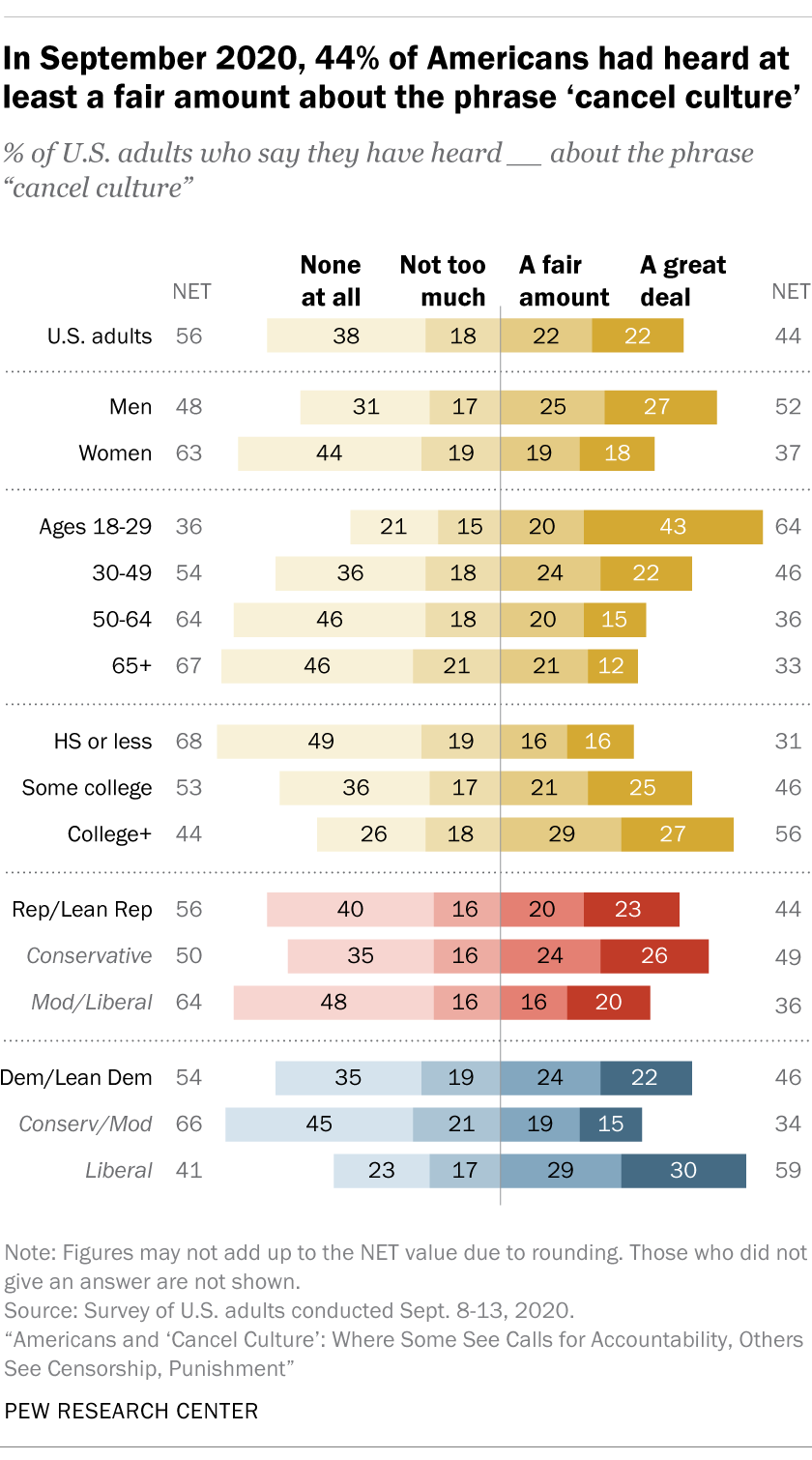
Familiarity with the term cancel culture varied by age, gender and education level, but not political party affiliation, according to the same survey.
Younger adults were more likely to have heard about cancel culture than their older counterparts. Roughly two-thirds (64%) of adults under 30 said they’d heard a great deal or fair amount about cancel culture, compared with 46% of those ages 30 to 49 and 34% of those 50 and older.
Men were more likely than women to be familiar with the phrase, as were those who have a bachelor’s or advanced degree when compared with those who have lower levels of formal education.
Democrats and Democratic-leaning independents were about as likely as Republicans and GOP leaners to say they had heard at least a fair amount about cancel culture (46% vs. 44%). But there were more pronounced differences within each party when taking ideology into account. About six-in-ten liberal Democrats (59%) said they had heard at least a fair amount about cancel culture, compared with roughly a third of conservative and moderate Democrats (34%). Similarly, around half of conservative Republicans (49%) had heard of the term, compared with around a third of moderate and liberal Republicans (36%).
Americans were most likely to mention accountability when describing what the phrase cancel culture means to them. As part of the fall 2020 survey, the Center asked U.S. adults who had heard a fair amount or a great deal about the term to explain in their own words what it meant to them. Around half (49%) said it describes actions people take to hold others accountable.
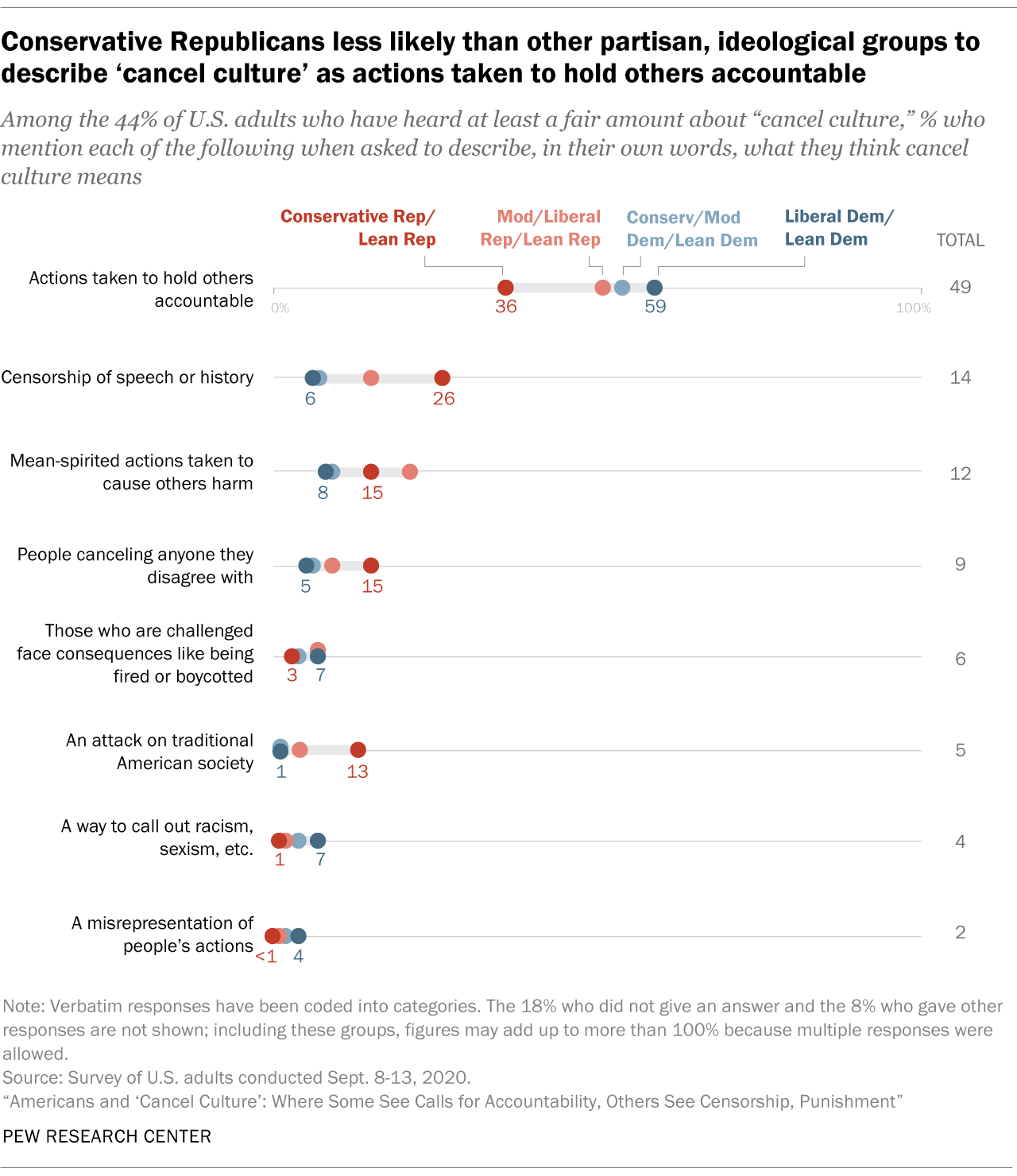
Smaller shares described cancel culture as a form of censorship – such as a restriction on free speech or as history being erased – or as mean-spirited attacks used to cause others harm (14% and 12%, respectively).
About a third of conservative Republicans who had heard of the phrase (36%) described it as actions taken to hold people accountable, compared with roughly half or more of moderate or liberal Republicans (51%), conservative or moderate Democrats (54%) and liberal Democrats (59%).
Conservative Republicans who had heard of the term were also more likely to see cancel culture as a form of censorship: 26% described it as censorship, compared with 15% of moderate or liberal Republicans and roughly one-in-ten or fewer Democrats, regardless of ideology.
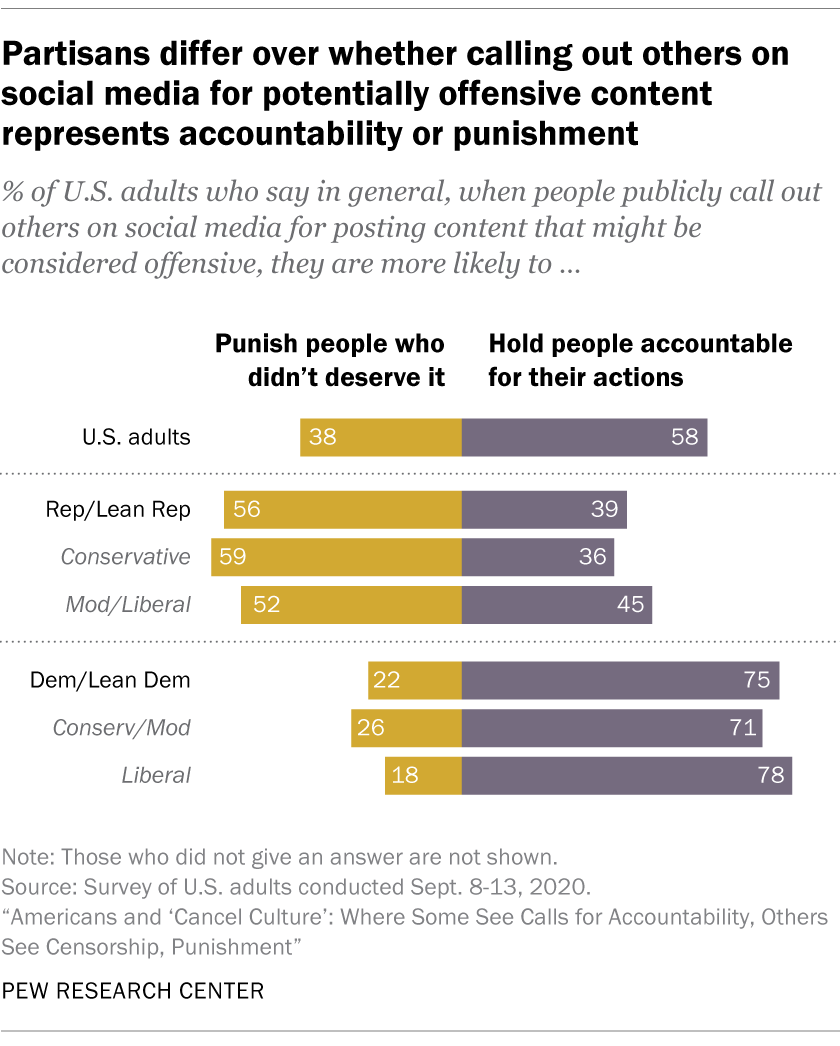
In the September 2020 survey, Americans said they believed calling out others on social media is more likely to hold people accountable than punish people who don’t deserve it. Overall, 58% of adults said that in general, when people publicly call others out on social media for posting content that might be considered offensive, they are more likely to hold people accountable. In comparison, 38% said this kind of action is more likely to punish people who don’t deserve it.
Views on this question differed sharply by political party. Democrats were far more likely than Republicans to say that this type of action holds people accountable (75% vs. 39%). In contrast, 56% of Republicans – but just 22% of Democrats – said this generally punishes people who don’t deserve it.
In a separate report using data from the same September 2020 survey, 55% of Americans said many people take offensive content they see online too seriously, while a smaller share (42%) said offensive content online is too often excused as not a big deal.

Americans’ attitudes again differed widely by political party. Roughly six-in-ten Democrats (59%) said offensive content online is too often excused as not a big deal, while just a quarter of Republicans agreed – a 34 percentage point gap. And while 72% of Republicans said many people take offensive content they see online too seriously, about four-in-ten Democrats (39%) said the same.
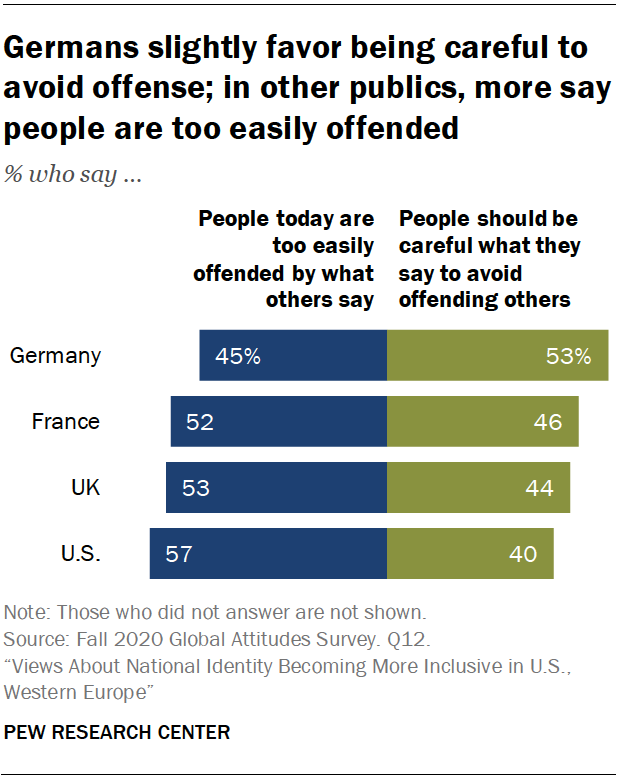
In a four-country survey conducted in the fall of 2020, Americans were the most likely to say that people today are too easily offended. A majority of Americans (57%) said people today are too easily offended by what others say, while four-in-ten said people should be careful what they say to avoid offending others, according to the survey of adults in the U.S., Germany, France and the United Kingdom.
In contrast, respondents in the three European countries surveyed were more closely divided over whether people today are too easily offended or whether people should be careful what they say to avoid offending others.
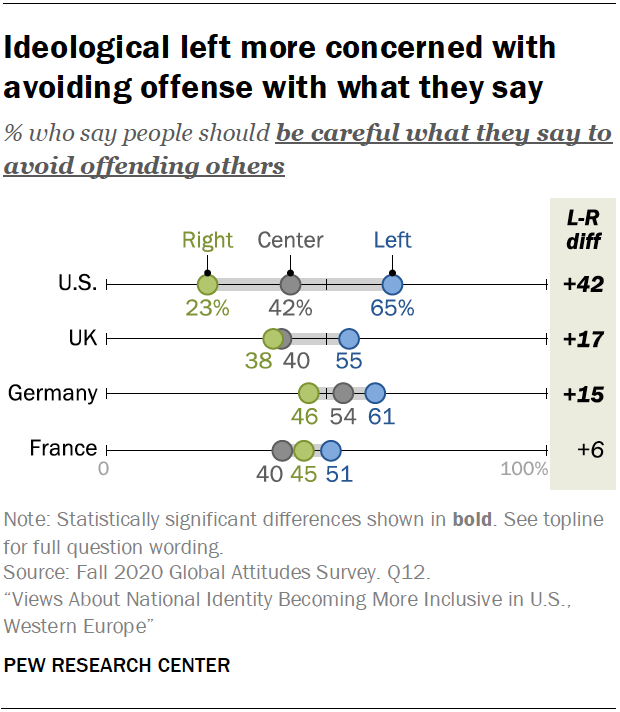
Opinions on this topic were connected to ideological leanings in three of the four countries surveyed, with the largest gap among U.S. adults. Around two-thirds of Americans on the ideological left (65%) said people should be careful to avoid offending others, compared with about one-in-four on the ideological right – a gap of 42 percentage points. The left-right difference was 17 points in the UK and 15 points in Germany. There was no significant difference between the left and the right in France.
In the U.S., the ideological divide was closely related to political party affiliation: Six-in-ten Democrats said people should be careful what they say to avoid offending others, while only 17% of Republicans said the same.
